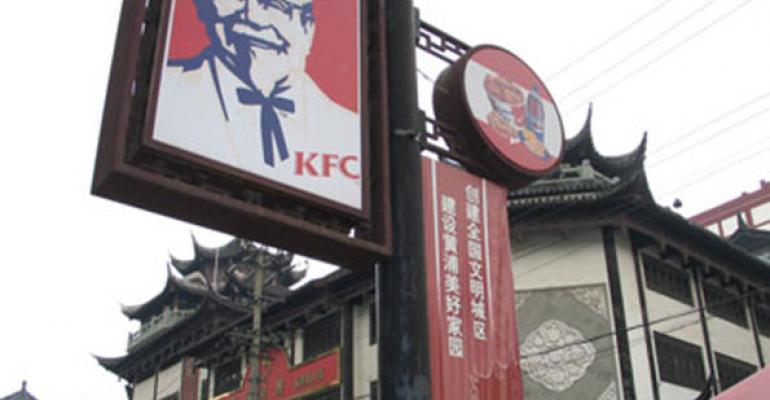KFC in China has sued a trio of companies in that country for allegedly spreading false rumors about the chain’s food, according to an announcement posted on KFC’s China website.
One of the most widespread rumors, according to the announcement, is that KFC uses chickens bred with six wings and eight legs. The company said the rumors misled consumers and hurt the brand’s reputation. Thousands of posts were spread from more than 130 accounts, KFC said, and many of the posts included pictures that were clearly manipulated.
KFC is asking for 1.5 million yuan, or $242,000, and an apology from each of the three companies that operate accounts on the popular mobile app WeChat, according to the Associated Press.
KFC’s lawsuit comes as Chinese authorities crack down on alleged rumors spread via social media. Last year, the country jailed a blogger who allegedly ran a “black PR” firm, which was paid to post comments online discrediting other companies, according to The Guardian.
KFC, which has 4,900 units in China and is owned by Louisville, Ky.-based Yum! Brands Inc., is the biggest and most popular restaurant chain in China, but has struggled recently, with sales falling steeply and brand perception issues in the country following two food safety scares. Same-store sales fell 12 percent in China in the first quarter ended March 21.
Investors have increased pressure on the company to spin off its China business or find another way to rely less on profits from its restaurants in the country. Some prominent activist investors have taken significant positions in Yum! Brands in recent weeks.
Still, Yum! Brands executives say sales will turn around in China. The company plans to build 700 new restaurants there this year, and expects sales to recover as its brand perception there improves.
Some activists seem to agree. One of them, Daniel Loeb, wrote positively about Yum! Brands in a letter to investors last month, and suggested that the company should profit from improving sales there.
“As a rule of thumb in the restaurant industry, it is easier to generate more business from existing customers than it is to capture new ones or win back those who have left the brand,” Loeb wrote.
The activists’ investments and comments, and support of the China business, have contributed to a recent run-up in Yum! Brand’s stock, which has risen 15 percent since the beginning of April.
Contact Jonathan Maze at [email protected].
Follow him on Twitter: @jonathanmaze





